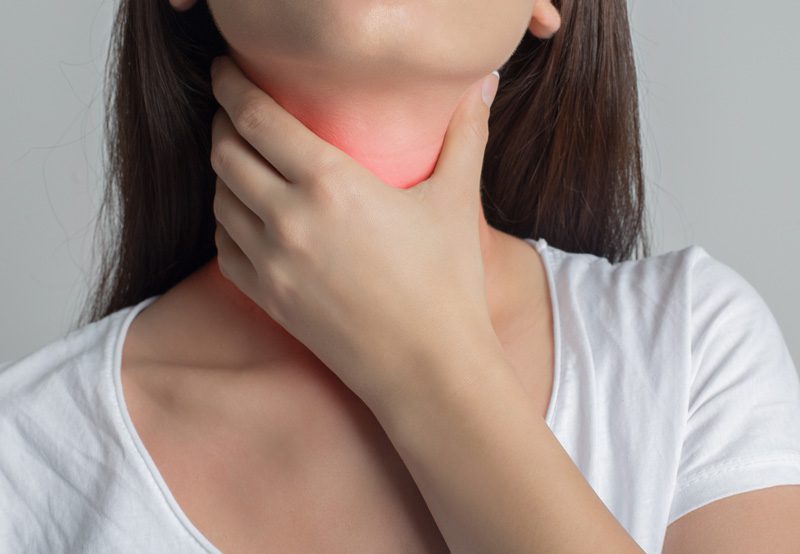

The thyroid gland, located in the front part of the neck, plays a crucial role in regulating metabolic processes in the body through hormone production. Sometimes, lumps or growths, referred to as thyroid nodules, can form in this gland. While often benign (non-cancerous), these nodules need careful evaluation due to the potential risks they may pose.
What Are Thyroid Nodules?
Thyroid nodules are relatively common, with many individuals unaware of their presence since they often don’t present any symptoms. These nodules can be solitary or multiple, forming a larger, irregularly shaped gland known as a multinodular goiter.
While the majority of thyroid nodules are benign, a small percentage can be malignant (cancerous). It’s this potential for malignancy that underscores the importance of proper evaluation and diagnosis.

Symptoms
Many thyroid nodules are asymptomatic, meaning they don’t cause any symptoms. When symptoms do appear, they might include:
- Visible swelling at the base of the neck.
- Feeling of tightness in the throat area.
- Difficulty swallowing or breathing, especially when nodules grow larger.
- Voice hoarseness.
- Pain in the neck, jaw, or ear.
If a nodule is producing thyroid hormones, it can lead to hyperthyroidism, with symptoms such as rapid heartbeat, weight loss, anxiety, and irritability.
Causes and Risk Factors
The exact cause of thyroid nodules is often unclear, but certain factors might increase the risk:
- Iodine deficiency: In some parts of the world, a lack of iodine in the diet can lead to thyroid nodules and goiter.
- Thyroiditis: An inflammation of the thyroid, often due to an autoimmune condition or viral infection, can result in nodules.
- Thyroid cancer: Though most nodules are benign, some might be cancerous.
- Age and gender: Thyroid nodules are more common as people age and are more frequently found in women.
- Radiation exposure: Exposure to radiation, especially during childhood, can increase the risk of thyroid nodules.
Diagnosis and Treatment
Proper evaluation of a thyroid nodule often involves a combination of physical examination, imaging, and biopsy.
- Physical examination: This involves feeling the neck to determine the size of the nodule and whether more than one nodule is present.
- Thyroid function tests: Blood tests can evaluate the hormone production levels of the thyroid.
- Ultrasound: This imaging technique can provide detailed images of the nodules, helping determine their size and if they are solid or filled with fluid.
- Fine-needle aspiration biopsy: A small sample of the nodule is removed using a thin needle. This sample is then examined under a microscope to determine if cancer cells are present.
Treatment options vary based on the nature and size of the nodule:
- Observation: If the nodule is small and not causing any problems, a wait-and-see approach with regular check-ups might be recommended.
- Thyroid hormone suppression therapy: Taking thyroid hormone can sometimes reduce the size of the nodules.
- Radioactive iodine: For nodules that are overactive, this treatment can help shrink them.
- Surgery: If the nodule is large, causing discomfort, or is suspected to be cancerous, surgery might be necessary.
Thyroid nodules, while often benign and asymptomatic, require careful attention due to the potential risks they pose. Recognizing potential symptoms and seeking timely medical evaluation is paramount. With advancements in diagnostic techniques, determining the nature of a nodule has become more accurate, allowing for targeted treatments. Whether through observation, medication, or surgery, appropriate management ensures not only the health of the thyroid gland but also the overall well-being of the individual. Regular check-ups and awareness remain crucial components in the journey of thyroid health.
